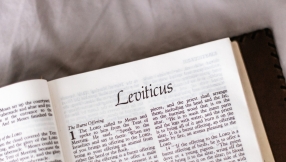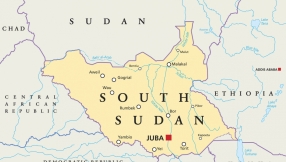By this stage of the holiday season, I imagine you might be looking with dismay at your overflowing rubbish bin, or the mountain of debris piling up outside your back door. Food, drink, presents - they all come with more and more packaging. Even the most eco-conscious of us is likely to have a bit of a bad conscience after Christmas.
Despite constant talk about recycling and thinking "green" - we're still a society that produces fantastic quantities of waste. From the big issues around toxic industrial and nuclear waste to the domestic questions of managing day-to-day waste and the build-up of stuff around us that can't be recycled, it's not something we can ignore. Look at the number of plastic bags flapping around by the roadside, in town and country alike - and you see what I mean.
What I wonder is - how much this influences attitudes in other parts of our lives?
In a society where we think of so many things as disposable; where we expect to be constantly discarding last year's gadget and replacing it with this year's model - do we end up tempted to think of people and relationships as disposable? Are we so fixated on keeping up with change that we lose any sense of our need for stability?
One of the buzzwords of recent years has been 'sustainability' - and, like all buzzwords, it tends to be used annoyingly all over the place, often for things it doesn't really fit. But what the word points to is the sense of obligation that most of us share at some deep level - the obligation to hand on to our children and grandchildren a legacy that helps them live and flourish. Building to last is something we all understand.
And if we live in a context where we construct everything from computers to buildings to relationships on the assumption that they'll need to be replaced before long - what have we lost?
Christians, like Jews and many other religious people too, talk a lot about God as 'faithful'. God is involved in 'building to last', in creating a sustainable world and sustainable relationships with us human beings. He doesn't give up on the material of human lives. He doesn't throw it all away and start again. And he asks us to approach one another and our physical world with the same commitment. The life of Jesus, the life in which God identifies completely with our flesh and blood is the supreme sign of that
commitment.
God doesn't do waste.
He doesn't regard anyone as a 'waste of space', as not worth his time - from the very beginnings of life to its end, whether they are successful, articulate, productive or not. And so a life that communicates a bit of what God is like, is a life that doesn't give up - that doesn't settle down with a culture of waste and disposability - whether with people, or with things.
Perhaps a good resolution for the New Year would be to keep asking what world we want to pass on to the next generation - indeed, to ask whether we have a real and vivid sense of that next generation.
A lot of the time, we just don't let ourselves think about the future with realism. A culture of vast material waste and emotional short-termism is a culture that is a lot more fragile than it knows. How much investment are we going to put in towards a safer and more balanced future?
A big question. But too big to avoid.
And if we feel a bit paralysed by just how big it is - well, we can at least start by a visit this week to the nearest recycling bins.
God bless you all in this New Year; may you have patience for the long view - confident that God takes the long view of you and isn't going to give up.
Happy New Year.
Most Popular
Stay up to date with Christian TodayNews

NI conversion therapy proposal will criminalise innocent behaviour
A proposal to ban conversion therapy in Northern Ireland has been labelled "jellyfish legislation".

Renewing the old and sanctifying the new in education
Hebrew academic and Jewish scholar Irene Lancaster reflects on what society can learn from the Jewish approach to education and the importance of nurturing the soul.

Half of students think the Bible is relevant today
Is the glass half empty, or is it half full?

Lancashire called to pray for partners in crisis-hit South Sudan
The Diocese of Blackburn has forged strong ties with its South Sudanese counterpart in Liwolo.





